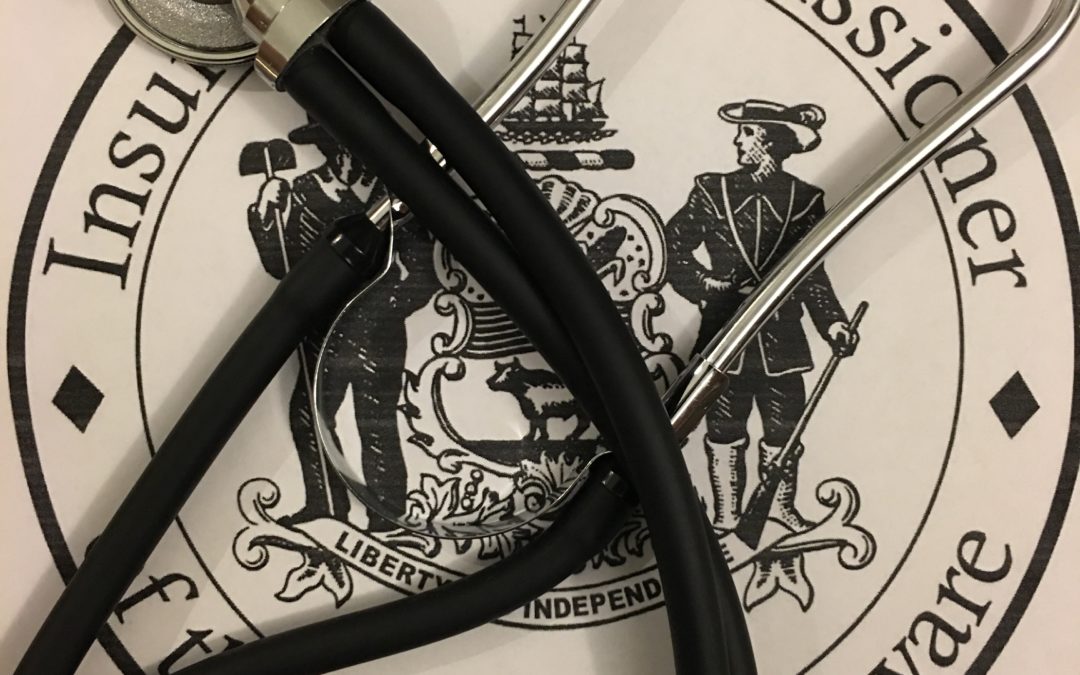A recent Delaware Business Now article reports that Milford, Delaware chiropractor Jean Vertus Laine was indicted by a Sussex County grand jury on criminal charges involving insurance fraud.
This got me thinking: An insurance fraud allegation can lead not only to criminal charges, prison, fines, and probation, but it can also result in Board discipline against the provider’s license. This can mean license revocation, suspension, probation, and more fines. Furthermore, it can lead to loss of standing professionally and damage to one’s reputation in the community.
But what if the allegation isn’t true?
Many providers are not aware of (a) how aggressively many insurance companies attempt to ferret out and prosecute providers for baseless billing charges, or (b) how inexact patients can be when describing their treatments and treatment times.
Consider the case of a simple automobile accident. In the state of Delaware, the patient’s auto insurance pays for medical treatment under the patient’s Personal Injury Protection or PIP policy provision. The auto insurer has an obligation to investigate and pay valid claims relating to the care that is reasonable and necessary as a result of the automobile accident.
Sometimes, the insurance company will call the patient directly and ask questions such as:
-what did you see Dr. Suchandsuch for?
-what modalities did the physical therapist or chiropractor use?
-which body parts are being actively treated?
-how long were you treated on a particular occasion?
-who treated you at the clinic?
-how many times a week did you see this provider?
These questions are all innocuous. There is no reason insurance companies should not ask these questions. In fact, the problem isn’t the question — it’s what happens when the patient is not a reliable medical historian, and frankly just wants to get off the phone. Let’s explore what happens when the patient has an IQ below 70, is taking Percocet for their pain, and gets a call out of the blue, and at an inconvenient time, from an insurance adjuster, shall we?
That patient’s liable to tell that adjuster:
-they saw Dr. Suchandsuch for their “rotary cup” injury (they may not mention the upper back pain, low back pain, or knee contusion for which they are also actively treating)
-not knowing what the word “modality” means, that patient is liable to tell the adjuster they watched TV in the clinic
-the patient may say “the doctor iced my shoulder” without mentioning the massage, interferential, or any of the other modalities employed
-the patient may not know how long they were in the clinic on any particular day. Many patients will grossly under-or over-estimate time. It’s not unheard of for a patient to state they were in a clinic for fifteen minutes when they were really there for an hour.
-the patient may not know how many times per week she was seen and may say “once a week” intending to say “at least once a week”, as they were consistently seen once, twice, or three times per week (just can’t remember how many times during any particular week).
One simple, defensive documentation technique: Ask patients to sign their treatment notes, acknowledging time in, time out, and the modalities employed in-between.
For many providers, this is as easy and simple as using a hand-written form with boxes that can be checked, blank spaces for time, and a signature line for the patient. This documentation could head off an errant fraud allegation very easily.
Such a note can be scanned and saved in the patient’s electronic health record. Or simply dropped into the patient’s paper chart. In this simple way, providers could save themselves from the torture of a false insurance fraud allegation.


